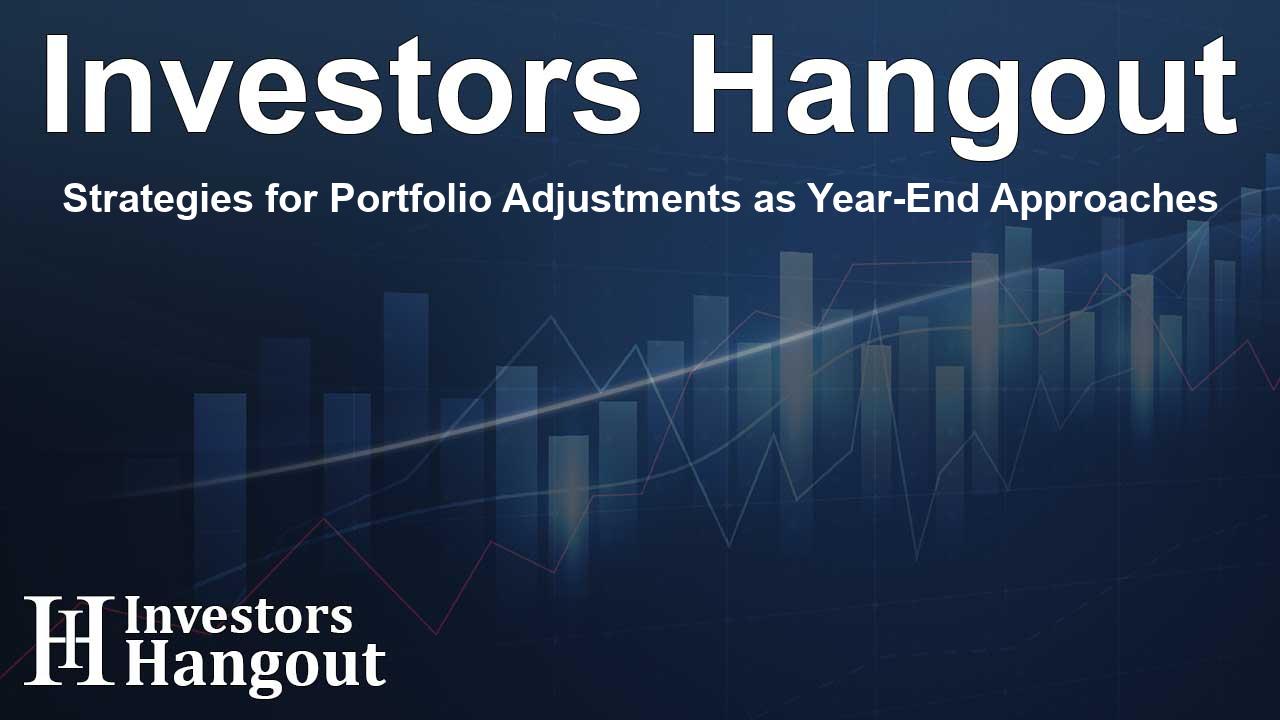Strategies for Portfolio Adjustments as Year-End Approaches

Strategies for Portfolio Adjustments as Year-End Approaches
As we approach the end of the year, many investors might feel the need to reassess their portfolios. Recent developments across global financial markets suggest that such a reassessment could be beneficial. The global investment landscape is shifting, and adapting to these changes is crucial for optimizing returns.
Understanding Current Market Conditions
Analysts highlight that the recent data indicates a strong performance in certain areas. In the U.S., for instance, credit markets have experienced a significant uptick, particularly after favorable employment reports. This has resulted in tighter credit spreads, reaching levels not seen since mid-2021.
The Resilience of Economic Data
Despite the strong economic indicators, such as a stable consumer outlook and unexpected growth rates, experts warn that these conditions support only a moderate and fluctuating outlook for credit spreads. Investors should remain vigilant and not overly optimistic based solely on these trends.
Opportunities in European Markets
Across the Atlantic, Europe is seeing a slower recovery than initially hoped, yet the technical aspects of the market are stabilizing. Carry strategies are gaining attractiveness, especially with the higher breakevens in the UK and Europe compared to those in the U.S., presenting unique opportunities for investment.
Investment-Grade Bonds as a Safe Bet
For instance, European investment-grade bonds for terms of 5-7 years are currently offering yields that align well with a risk-return balance. This is particularly appealing when compared to U.S. credit spreads, which have reached their lowest point in three years.
Optimizing Your Portfolio
To effectively optimize their portfolios, analysts suggest several reallocations. For those focused on U.S. markets, increasing exposure to high-yield (HY) bonds within the 3-5 year range is encouraged, while simultaneously reducing positions in U.S. investment-grade bonds over the same duration.
Exploring European High-Yield Opportunities
In the European markets, HY bonds in the same duration band are proving to be a compelling option for risk-adjusted returns. Investors keen on diversifying their portfolios should consider these allocations in light of current market conditions.
Caution with Emerging Market Credit
However, investors must also approach emerging markets with care. Analysts advise decreasing exposure to credit in these areas, as the risks associated with emerging markets are often misaligned with those of developed markets—especially in the wake of China's post-COVID stimulus measures.
Valuing Carry in European and UK Markets
A significant point for investors to consider is the value of carry in their investments, particularly in the European and UK markets. Bonds issued in GBP are standing out as among the most attractive options available, providing solid diversification and low correlation with equity market performance.
Shifting Focus Towards Shorter Duration
The current investment landscape reveals that shorter duration credit instruments are proving to be optimal. While less risky options remain pivotal, slightly longer tenors—specifically those in the 5-7 year range—are presenting better yields than in previous assessments.
Prioritizing Cash Bonds Over Synthetic Credit Exposure
Given the options available, analysts recommend prioritizing cash bonds over synthetic credit exposure. Investors should note that cash bonds present more attractive returns compared to credit default swaps, reinforcing the strategy of a careful return-focused portfolio adjustment.
Conclusion: Key Strategies for Year-End
As the year winds down, focusing on high-yield credit opportunities, especially in the UK and Europe, alongside a tactical shift toward shorter-duration credit instruments, can be essential strategies for investors.
Frequently Asked Questions
Why is portfolio reallocation important at year-end?
Reallocation helps investors adjust to changing market conditions and optimize returns for the upcoming year.
What are the current market trends influencing investment decisions?
Current trends show tighter credit spreads in the U.S. and a slower recovery in Europe, affecting portfolio strategies.
How can high-yield bonds benefit my portfolio?
High-yield bonds can provide better risk-adjusted returns and diversify your investment strategy effectively.
Why should I be cautious about emerging markets?
The risks in emerging markets often do not correlate with those of developed markets, making them more volatile.
What is the value of carry in bonds?
Carry in bonds refers to the benefit of earning interest on investments while holding them, which can enhance overall returns.
About The Author
Contact Olivia Taylor privately here. Or send an email with ATTN: Olivia Taylor as the subject to contact@investorshangout.com.
About Investors Hangout
Investors Hangout is a leading online stock forum for financial discussion and learning, offering a wide range of free tools and resources. It draws in traders of all levels, who exchange market knowledge, investigate trading tactics, and keep an eye on industry developments in real time. Featuring financial articles, stock message boards, quotes, charts, company profiles, and live news updates. Through cooperative learning and a wealth of informational resources, it helps users from novices creating their first portfolios to experts honing their techniques. Join Investors Hangout today: https://investorshangout.com/
The content of this article is based on factual, publicly available information and does not represent legal, financial, or investment advice. Investors Hangout does not offer financial advice, and the author is not a licensed financial advisor. Consult a qualified advisor before making any financial or investment decisions based on this article. This article should not be considered advice to purchase, sell, or hold any securities or other investments. If any of the material provided here is inaccurate, please contact us for corrections.
